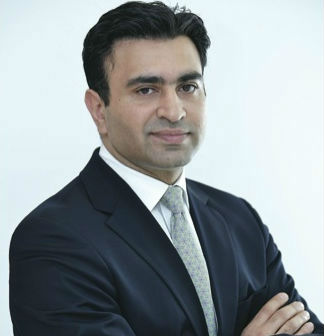How To Set Up A Pension Fund In The UAE
Start saving for your future as soon as you begin earning, advises Jahangir Aka, head of SEI Investments Middle East.

While living in the UAE provides the luxury of saving more, due to the zero-tax regime, it also leaves expatriates without a plan for their retirement. The fact is, most expats in the country have not proactively set up a pension as they have gone from working in economies with established and often mandated pension schemes, to a region devoid of them.
WHY AND WHEN?
So why should someone start a pension? The answer is self-evident: because you are going to get old. This is one of the certainties in life, along with tax. In addition, future governments are not going to be able to look after you.
As soon as you start earning, you should start saving. That may seem a conservative approach, but it is fundamentally a very sound approach because the greatest way to generate a large sum of money is to compound small amounts when younger, and increase the amounts over a long period of time. The longer you save for, the bigger the sum when you retire.
THINGS TO EVALUATE
One of the first things to consider when setting up a pension fund is the tax regime in your home jurisdiction and what structure to adopt to make it tax-efficient. Typically, these end up being offshore structures.
In this part of the world people also need to consider portability from one employer to the other. For example, if one changes their job from the UAE to Qatar, will they still be able to contribute to their pension scheme?
EMPLOYER SCHEME OR PENSION FUND?
Once you decide the amount of money you are ready to put aside for your retirement, the next question is whether to avail yourself of savings schemes from your employer or approach an independent financial advisor to tailor a pension scheme for you.
The key benefit of opting for a long-term savings scheme from your employer is that they have an independent board of trustees who ask the right questions on behalf of the employee: what are the costs involved, are the savings portable from one jurisdiction to another, etc.
Another advantage of going through your employer is that they will not seek out commission fees, so they have no incentive in selling you a product.
That said, the employer cannot offer a long-term pension solution in this market, they can only offer a long-term savings plan. The employers usually employ people from many nationalities and the savings scheme in place may not be suitable for every tax code.
On the other hand, by opting for an independent financial advisor (IFA), the retirement plan can be tailored to your requirements. It can be altered to specific tax-codes and offers a degree of portability. The downside though, is that it is more expensive, and considerably so.
Financial advisors are also not independent as they are motivated by commissions and lock-up terms that are not being scrutinised sufficiently.
However, if you decide to use a financial advisor, I would encourage anyone looking to set up a private pension to challenge his or her financial advisor on the fee structure.
